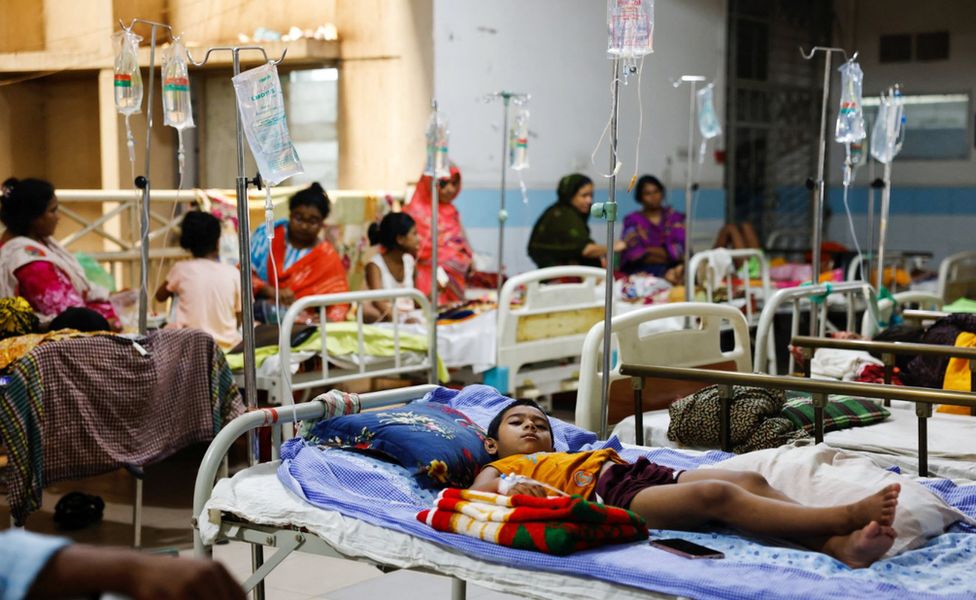-

-
-
Loading

Loading

Bangladesh is currently experiencing its most severe outbreak of dengue fever yet, with nearly 1,000 deaths reported in recent weeks. The unusually heavy monsoon season has created ideal breeding conditions for the mosquitoes that carry the dengue virus, thriving in stagnant water. The authorities have been struggling to control the spread of the disease, leading to overwhelmed hospitals. Dengue can cause internal bleeding and, in severe cases, death. Symptoms include headaches, nausea, joint and muscle pain. The disease is common in tropical countries and outbreaks typically occur in areas with poor sanitation. Climate change has led to more frequent and earlier outbreaks in Bangladesh since 2000. This latest wave of infections has caught the country off guard, as it is caused by a stronger strain of the virus. Doctors have noted that patients' conditions deteriorate much more rapidly compared to previous years. The daily death toll from dengue has reached up to 20 people in the past two months. Bangladesh has launched public awareness campaigns to prevent mosquito breeding, but experts argue that more needs to be done. Currently, hospitals in the capital, Dhaka, are overwhelmed with dengue patients and facing shortages of intravenous fluids, which are vital for treatment. The World Health Organization has reported dengue infections in all 64 districts of Bangladesh.